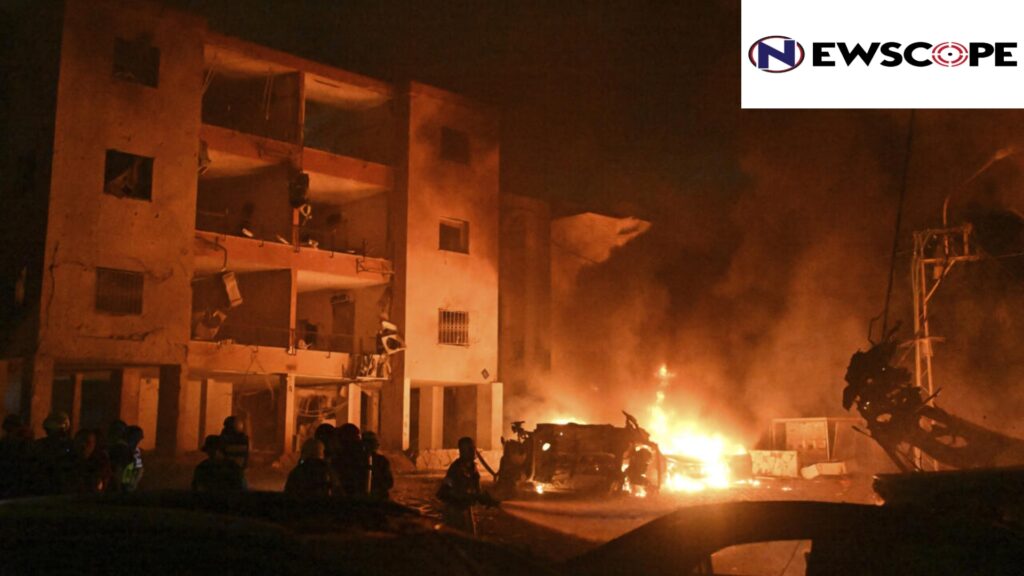Israel and Iran can hardly said to have an amicable relation. But one needs to take a close look into the recent belligerence to pin down its cause.
Striking nuclear and military facilities, this was Israel’s largest strike on Iran at a time when cautious optimism was on the rise. These strikes are Israeli prime minister Benjamin Netanyahu’s attempt to survive international domestic challenges.
There was no evidence before the air strike that Iran was close to building a nuclear weapon. On the other hand, Israel has always considered a nuclear Iran as an existential threat.
Preventing Iran from developing an atomic weapon has been a signature platform for several Israeli prime ministers.
Netanyahu too shares this ‘honour’.No doubt, he will earn kudos after the war planes have struck Nantz nuclear facility where Iran produces most of its uranium fuel.
It is stated to be “the beating heart of Iranian nuclear program”. Indeed Netanyahu can preen himself in his perch as being the man exercised the first strike option sans any thought of retaliation.
Moreover, Israeli strikes had among its casualities major general, Mohammed Bagheri, chief of staff of the armed forces. To make matters more critical for Iran, general Hussein Salami, chief of Revolutionary Guards Crops have also died.
Feryedoun Abbasi, a top nuclear scientist was also killed. Israel seems to have planned it’s strike to cripple Iran’s military and nuclear establishment.
Apart from Nantanz, the strikes hit Tabriz, Tehran, Arak, Isfahan and Kermanshah. Thus not only nuclear facilities but civilian habitats have not been spared.
But there seems to be wheels within wheels as the Israeli planes zeroed down on their targets. Netanyahu is trying his best to cope with resentment at home and alienation abroad.
The air strikes sought to scuttle possibilities of a nuclear deal between Iran and US, Israel’s closest ally in the western world. That is the last thing on Netanyahu’s radar.
To cut a long story short, Netanyahu is on a sticky wicket. The war in Gaza and the use of hunger as a weapon have alienated many allies of Israel.
Several countries have censured two ministers of Netanyahu’s Cabinet. Israeli prime minister,
is under pressure on the domestic front.
Netanyahu seems to have chalked out a game plan. And he lost no time for its fruition.
The threat of a fresh conflict may rally the Israelis behind Netanyahu. The attack on Iran can arguably distract some of the western allies who are critical of the actions of Israel in Gaza.
Another pointer to Netanyahu’s discomfiture in his homeland has surfaced. Of late, the Opposition tried to dissolve Israel’s parliament.
Iran’s foreign minister Abbas Arghchi has said Israel “had crossed every red line” and that “it would deeply regret this reckless aggression.”The biggest question is now how Iran will retaliate.
It can, as it has done in the past activate its proxies. Sending drones and missile attacks is certainly an option but it has its limitations.
America in general and Donald Trump in particular has emerged in a poor light from this aerial attack. If US secretary of state, Marco Rubio distanced his country from the attack he had not taken his President in the reckoning.
President Trump contradicted his administration. He called the air strikes “excellent’ and warned of more strikes if Iran does not curb its nuclear programme.
In doing so, Trump walks away from his MAGA base. After all, a part of his image was that of a “deal maker” who can remove America from global conflicts.
What is being overlooked is that the recklessness of Israel’s strikes can unite the other nations against it. It would be a difficult existence as an international pariah.
India has urged both sides to avoid escalatory tests. But such diplomacy seems to be off-ramp for Tehran now.
Things seem to be inching towards the brink. It is time to step on brakes to stop an all-out conflagration which is the last thing the region needs.
